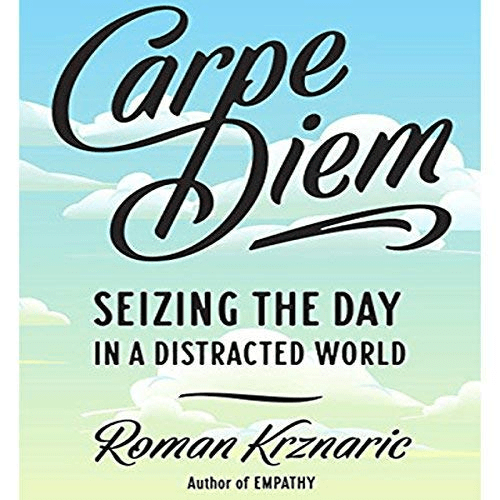


Rather, what does conflict with this concept are unnecessary delays that can be avoided, especially when they occur because of your focus on the past or the future instead of the present, or when they occur because you lack appreciation for the limited time that you have. Such delays don’t conflict with the concept of ‘carpe diem’, since the proper implementation of this concept should take into account reasonable constraints in life. Note that it’s not always possible to do things that you’re interested in immediately, and sometimes it’s necessary and reasonable for you to wait until later. Going to an event that you’re interested in now, instead of repeatedly promising yourself that you’ll do it later.

Talking to someone who you’re interested in developing a relationship with now, instead of continually telling yourself that you’ll do it tomorrow.Starting a business or a project that you want to work on now, instead of spending months fantasizing about doing it later.Other examples of how ‘carpe diem’ can be implemented include the following: Another notable example of this is the term you only live once (YOLO), which people often use in conjunction with ‘carpe diem’ to justify taking unnecessary risks and engaging in reckless behavior.Ī simple example of how ‘carpe diem’ can be implemented is that, if you have a good opportunity to start a hobby that you’re interested in, then you should choose to do so now, or as soon as possible, rather than wait and hope that someday in the future you’ll have time for it. This includes, for example, the term carpe noctem, a play of words on ‘carpe diem’, which means ‘seize the night’, and which encourages people to make the most out of the night, usually in way of celebration. Note: some modern terms reflect the distorted meaning of the term ‘carpe diem’. As such, ‘carpe diem’ shouldn’t be viewed as a simple justification for reckless and hedonistic behavior, or for living life with no care for the future. Overall, the concept of ‘carpe diem’ is about making the most of the present, and therefore not postponing things unnecessarily, while being driven by awareness of the inevitability of death, and consequently of the value of every moment in life. It’s about not losing your today in a vain attempt to predict your tomorrows, and about focusing your attention and actions on the present moment, which is the only thing you can directly control at any given time. This suggestion to be active and enjoy the moment is about more than simple hedonism it’s about recognizing the brevity of life and embracing the inevitability of death. Specifically, at its core, the concept of ‘carpe diem’ revolves around focusing on the present as much as possible, and taking desirable action now, instead of postponing it for later. However, this represents a distorted view of what ‘carpe diem’ actually means. People often misinterpret the concept of ‘carpe diem’, and view it as simple encouragement to engage in careless, hedonistic (pleasure-seeking) behavior. The relationship between carpe diem and mindfulness.


 0 kommentar(er)
0 kommentar(er)
